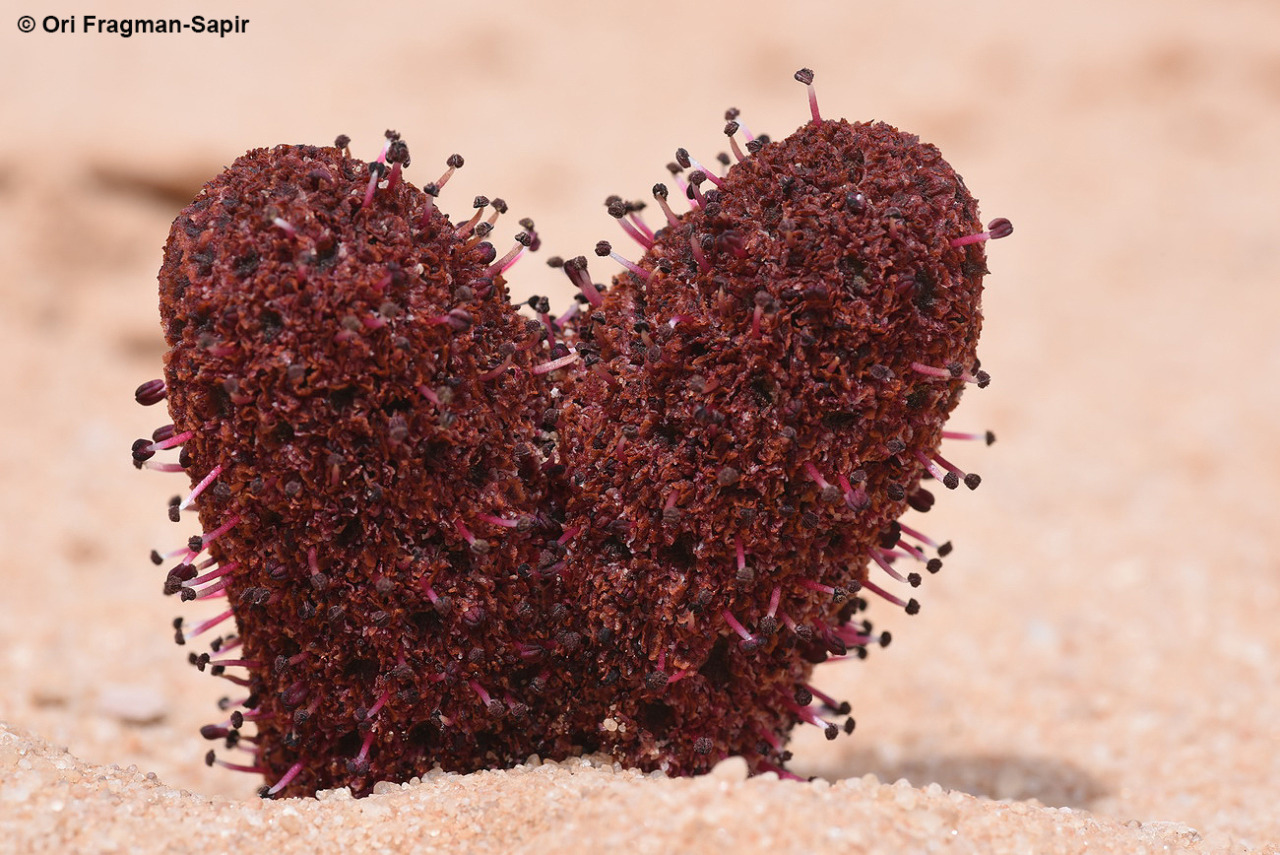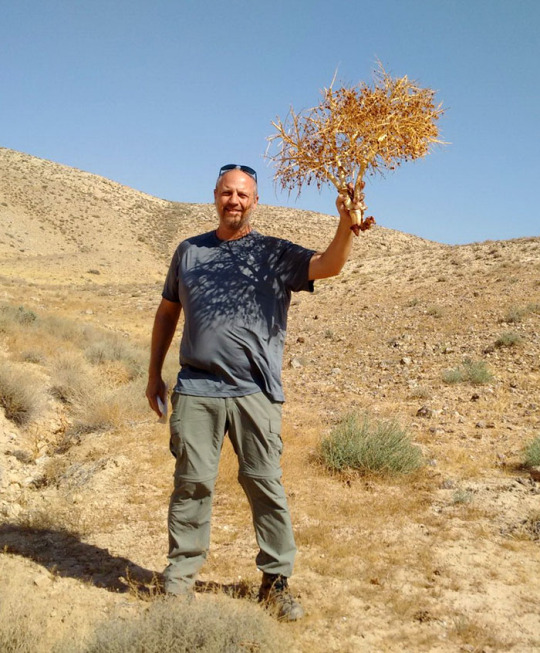A Parasitic Plant Rises from the Desert in Jordan - Observation of the Week, 6/24/19

Our Observation of the Week is this Cynomorium coccineum plant, seen in Jordan by @fragmansapir!
Currently the scientific director of the Jerusalem Botanical Gardens, Dr. Ori Fragman-Sapir works “on endangered plants, flower bulbs, doing ecological and taxonomic research.” He also leads tours in Israel, the Mediterranean, and the Caucasus. While on an excursion to the southern part of Jordan (for his birthday!) this past April when Dr. Fragman-Sapir came across the small plant seen above. “It was amazing to see this parasite coming out of the dry sands, as if it was a miracle,” he recalls.
Those red stalks are pretty much the only parts of the plant one can see above ground, and they’re source of this species’ myriad common names, such as red thumb, desert thumb, and the bizarre (and misleading) Maltese fungus. A completely parasitic plant, Cynomorium coccineum contains no chlorophyll and spends most of its existence as a rhizome (an underground stem - think ginger or lotus “roots”), leaching nutrients and water its host plant, or plants. In spring the plant will send up its inflorescence, which is covered in tiny flowers. Flies are attracted to the cabbage-like smell of these flowers, and serve as the plant’s main pollinators.

Dr. Fragman-Sapir (above) has recently started posting his photos to iNaturalist, and hope it becomes a place where can have all of his “observations in one convenient place where others could enjoy and learn as well.”
- by Tony Iwane
- Dr. Fragman-Sapir has authored or coauthored several books, some in Hebrew and some in English, including Flowers of the Eastern Mediterranean.
- Many cultures have believed Cynomorium coccineum can cure multiple ailments, such as ulcers, anemia, hypertension, and impotence. It’s flesh is also edible as a food source.
- Check out this video about dodder, another type of parasitic plant, and watch it “choose” a host.





Kommentit
A fantastic observation and a great shot. Thank you Dr. Fragman-Sapir!
Wow. Very alien looking organism.
What a spectacular organism! I never knew there were plants independent of the sun. I also find it amazing how it has not only coevolved with the plant it takes advantage ofg but the flies as well given how it only blooms in the spring.
Great discovery!
@fragmansapir !אני מקווה לראות את זה בעצמי יום אחד .תודה על השיתוף איזה צמח יפה ומוזר
Lisää kommentti